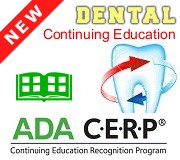| Dental Hygiene Procedures Important Against Endocarditis, Studies |

|
 |
 |
| Wednesday, 21 March 2024 11:06 |
|
According to two recent studies, poor dental hygiene in patients with congenital heart disease can increase their risk of endocarditis. These studies were led by Professor Philip Moons, professor in nursing science at the University of Leuven, Belgium, and guest professor at Copenhagen University Hospital, Denmark. The results of both studies were highlighted at the 12th Annual Spring Meeting on Cardiovascular Nursing, which took place earlier this month in Copenhagen, Denmark. The first study, (FPN 34) 1, involved gathering information on the lifestyle of 429 participants with congenital heart disease. Their age ranged between 14 and 19. The information was collected as part of a longitudinal study associated with i-DETACH (Information technology Devices and Education program for Transitioning Adolescents with Congenital Heart disease). All the above criteria are thought to play a critical role in patients with congenital heart disease. An ‘overall health risk score' was estimated for each participants and a substance use risk score, The risks of improper dental hygiene and absence of physical activity were also calculated. A scale, from 0 to 100, was created, were 100 points represented maximum risk. After comparing the results with those of the controls, it was found that adolescents with congenital heart disease had limited substance use and high dental hygiene risk scores. Professor Moons commented on the results. “The fact that adolescents with congenital heart disease have better health behavior overall than the general population is understandable, given the amount of input they have had from healthcare professionals over their lives. But we need to do more to understand why their dental hygiene is not as good as expected”. In regards to the second study, (FPN 158), the same questionnaire was used to gather information on the life style of a group of adults. Their age ranged between 16 and 48. They had a certain type of congenital heart disease known as single ventricle physiology. They were compared to another group used as controls. Patients indicated that they had less physical activity combined with worse dental hygiene habits. Professor Moons commented “Patients with complex conditions can have physical restrictions so the fact that they are less physically active is perhaps not surprising. But the reasons behind the poorer dental hygiene practices of patients in both studies need to be investigated further,” Prevention of endocarditis in patients with congenital heart disease has concentrated on the use of antibiotics taken one hour before a dental procedure. This approach has shown to be useful against bacteria released into the blood stream during dental treatment including the management of gum disease. If bacteria gain access to the blood stream and form vegetations on heart valves the result is an endocarditis. However, researchers indicated that daily dental hygiene procedures are more critical against endocarditis than antibiotics before conducting dental procedure. Professor Moons concluded “Systematic structured patient education on the importance of dental hygiene is critical for preventing endocarditis in patients with congenital heart disease,” |





